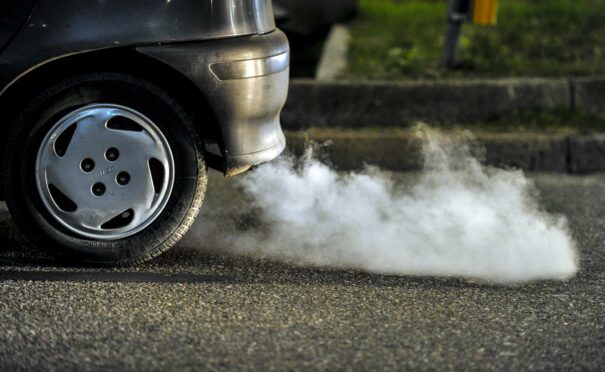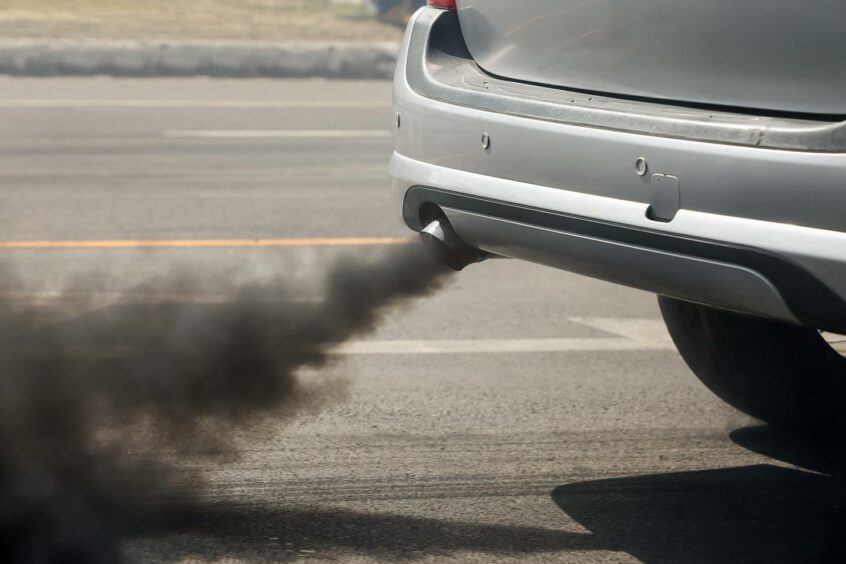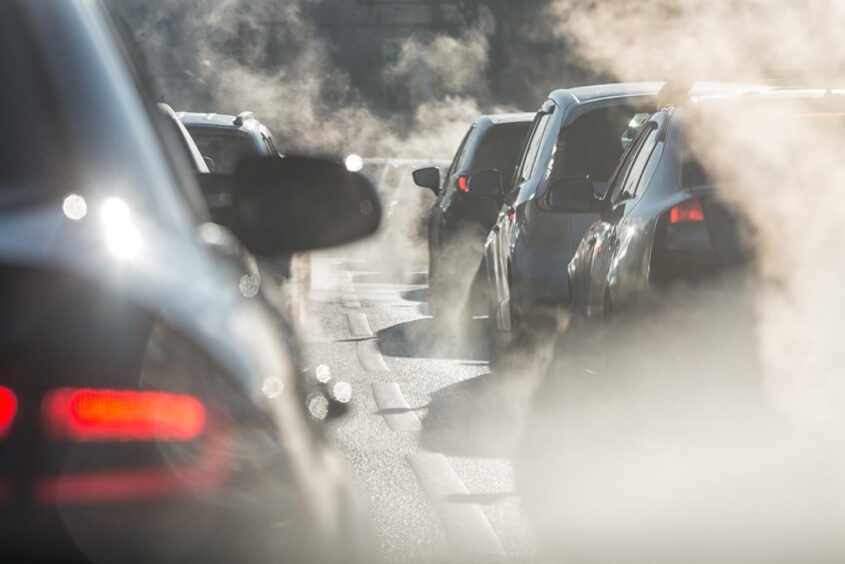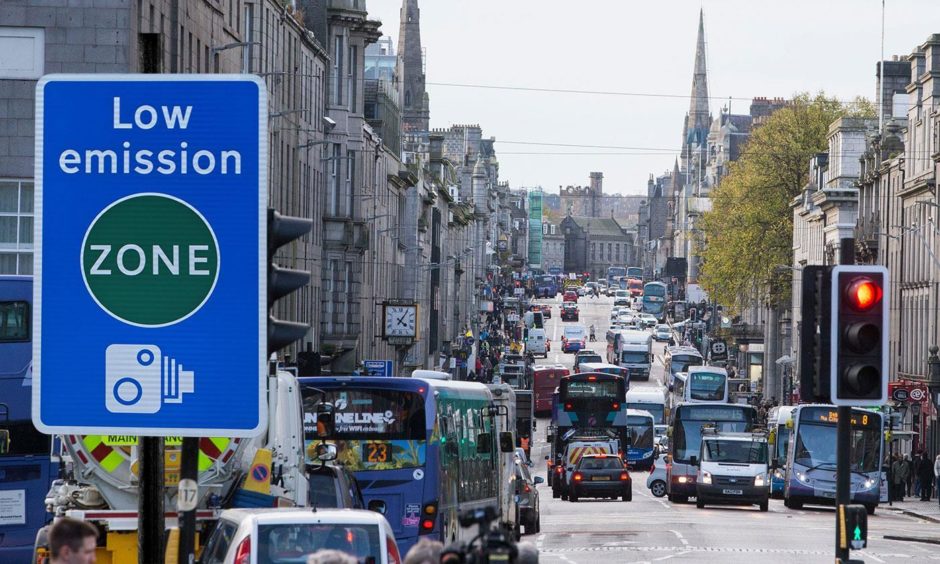No motorists have been fined for breaking vehicle idling laws across the north and north-east of Scotland since 2017, prompting calls for councils to “step in and enforce the law”.
Leaving your vehicle’s engine running unnecessarily while stationary not only contributes to pollution, it is illegal.
According to the Road Traffic (Vehicle Emissions) (Fixed Penalty) (Scotland) Regulations 2003, rulebreakers can face a £20 fine.
The Scottish Government said the “purpose of the scheme is to provide local authorities with an additional tool for managing air quality in their areas”.
But, since 2017, not a single motorist has been fined for unnecessary vehicle idling in Aberdeen, Aberdeenshire, Moray, the Highlands, Orkney, Shetland, the Western Isles, or Argyll and Bute.
What’s so bad about vehicle idling?
Keeping your engine running unnecessarily while your vehicle is stationary is not only a waste of money, against the law and a source of air pollution, it can also cause health problems.
The Royal College of Physicians says every year in the UK, around 40,000 deaths are “attributable to exposure to outdoor air pollution, which plays a role in many of the major health challenges of our day”.
Exhaust emissions, which contain pollutants like carbon monoxide and particulate matter, can be particularly concerning for people with respiratory conditions such as asthma.

Gavin Thomson, transport campaigner for Friends of the Earth Scotland, has urged local authorities to increase enforcement, as he argued engine idling is a “big part of the problem” of air pollution.
He said fines would deliver a stronger message about the issue.
He said: “Councils have the power to stop engine idling by handing out modest fines.
“Enforcing this will also help the public understand the dangers being caused.
“Idling is a particular problem around schools, and given children are among those most vulnerable to being affected by poor air quality, this is really worrying to many parents around Scotland.
“Councils need to step in and enforce the law to protect our health.”
What are the rules?
The legislation is aimed to target “serious offenders”, and not “motorists who leave engines running when parked for no more than a few seconds”.
It applies to all vehicles on public roads including buses, taxis, and private cars.
However, it does not apply to vehicles moving slowly due to traffic jams, stopped at traffic lights or undergoing repairs.
It does also not apply to those defrosting their vehicle’s windscreens in cold weather.
Why are councils not issuing fines?
In response to freedom of information requests, the councils of the north and north-east of Scotland, as well as Orkney, Shetland and the Western Isles, gave a variety of reasons for not issuing £20 penalty notices to idlers.
Aberdeen City council said that although its environmental protection officers could issue fixed penalty notices related to idling vehicles, the “service’s current approach is to educate drivers on vehicle idling”.
In Aberdeenshire, the local authority said: “The legal powers to stop vehicles and check emissions are discretionary and local authorities have to apply for them if they wish to use them.
“Aberdeenshire Council has never applied for these powers.”
Moray Council simply said it “does not have staff who issue fixed penalty notices for vehicle idling”.
And in Shetland, the council said: “Shetland is a predominantly rural area with high winds, relatively low traffic volumes and without inner city areas which are the main target of the powers to issue fixed penalty notices for unnecessary vehicle idling”.
What about elsewhere in Scotland?
Dundee City and Edinburgh councils both confirmed neither had issued fines under the legislation since 2007.
Edinburgh council said: “If a driver is identified engine idling, legislation requires officers to give warning and allow a reasonable time for drivers to switch off their engines when asked.
“If they switch their engine off, we would not issue a fixed penalty.
“So essentially, although some approaches may not be recorded, in every instance the driver has switched their engine off as requested.”
Glasgow City Council, however, has recorded incidents of drivers being approached — and fined.
The local authority said three fixed penalty notices were issued for idling unnecessarily in the 2017/18 period, but since then, none have been handed out.
It said that according to Scottish Government guidance on vehicle idling, council officers should only issue fines as a “last resort”, and that “providing advice and guidance is the main method used to prevent such activity”.
In total, 2,144 drivers in Glasgow have been “spoken to and given advice or a leaflet” regarding vehicle idling since 2017.
Low emission zones
The local authorities of Scotland’s four biggest cities of Glasgow, Edinburgh, Dundee and Aberdeen are working on other initiatives to lower air pollution in their busiest urban areas.
In September 2017, the Scottish Government committed to the introduction of low emission zones, where high-polluting vehicles would be banned, in the four cities by 2020 in order to improve air quality.
This date was pushed back, and Aberdeen City Council is now getting ready to introduce its own low emission zone, or LEZ, in the Granite City by May next year, although there will be a two-year grace period where no enforcement will take place.







